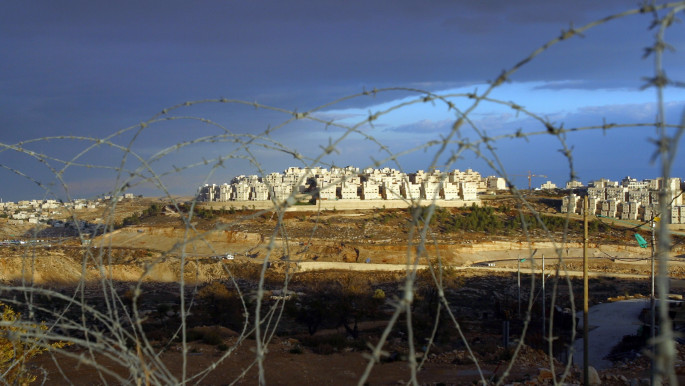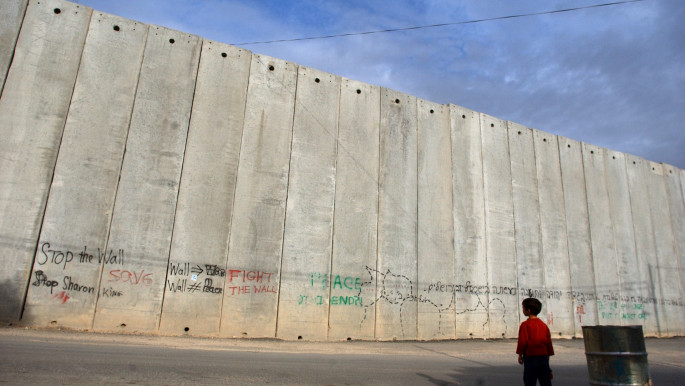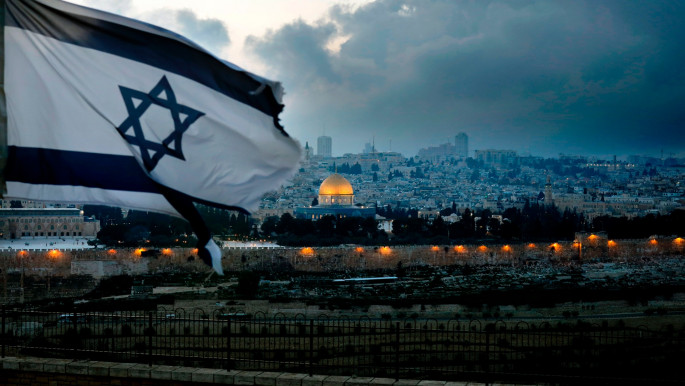Will annexation mark the end of Jordan's peace treaty with Israel?
Many fear that annexation will mark the end of the two-state solution, which has been strongly promoted by Jordan's King Abdullah, as there would not be much land left on which Palestinians could establish a viable independent state.
With Donald Trump's presidency potentially due to expire in November, Israeli ultranationalist and far-right blocs believe that the time is ripe to take action.
In May, King Abdullah said in an interview with the German Der Spiegel magazine said that "if Israel really annexes the West Bank in July, it would lead to a massive conflict with the Hashemite Kingdom of Jordan." He also noted that he was studying "all options."
In a similar fashion, Jordan's Prime Minister Omar al-Razzaz has said annexing parts of the West Bank will force the country "to review all aspects of our relations with Israel," while the country's Foreign Minister Ayman Safadi noted that such a move would have "catastrophic" consequences and would not pass without a Jordanian response.
Accumulated anger
Given that at least half of Jordan's 9.5 million citizens are of Palestinian origin, and almost 2.2 million Palestinians are registered with the United Nations as refugees, it is very possible that Israeli annexation may trigger an explosive reaction from Jordan's population.
 |
Many fear that Israeli annexation will mark the end of the two-state solution, which has been strongly promoted by Jordan |  |
But so far, Jordan, which is one of only two Arab states to have signed a peace treaty with Israel, has not disclosed what measures it intends to take. This domestic pressure will only increase if King Abdullah does not give the impression that he is taking sufficient diplomatic steps against Israel.
Dr. Shehab Al-Makahleh, a senior media and policy adviser in Jordan and the United Arab Emirates, says that so far Jordan has only increased its diplomatic activity at a regional and international level.
 |
|
| Read more: How will the EU respond to Israel's West Bank annexation plans? |
The Jordanian Foreign Minister Ayman Al-Safadi made an unannounced visit to Ramallah, for example, in which he met the Palestinian Authority President Mahmoud Abbas and delivered a message from the Jordanian monarch reiterating his support for a two-state solution. But the question is, who will respond to this call?
Speaking to The New Arab, Eugene Rogan, Director of the Middle East Center at St. Anthony College, said following the Trump administration's unveiling of its pro-Israel peace plan he was surprised "by the muted reaction in the streets of Amman - there was anger, but no major demonstrations."
However, much has changed since then, and in his view people have had five months to build anger at the injustice of annexation of Palestinian territory, following decades of indignation at discriminatory Israeli and US policies towards Palestinians.
Dr. Curtis Ryan, Professor of Political Science at the North Carolina based Appalachian State University, added that the anger in Jordan about Israeli annexation is already there, but if Israel proceeds apace with its plans it will hit fever pitch. It is important to stress, he says, that it is not only Palestinian- Jordanians who feel this way.
 |
The peace treaty with Israel, already unpopular with Jordanians, could prove a domestic political liability |  |
"Jordanians of almost every background, as well as left and right-wing forces and both opposition and the monarchy itself, are opposed to annexation. In an odd way, the extremist policies of the Netanyahu administration have often had the effect of uniting Jordanian public opinion," he told The New Arab.
Jordan has neither the means nor the will to engage in military conflict. But its peace with Israel, already unpopular with Jordanians who oppose normalisation with the Jewish state, would prove a domestic political liability and Rogan expects King Abdullah and the government to take immediate and visible measures to downgrade relations with Israel.
Fragile peace treaty
It is still not known to what extent Netanyahu intends to annex parts of the West Bank. Last April, he pledged to apply Israeli sovereignty to all 130 Jewish settlements and outposts. In September, he said that Israel would also annex the Jordan Valley, which forms roughly 30 percent of the West Bank.
However, some speculate that if he proceeds with annexation it will be largely symbolic, extending sovereignty to several Israeli settlements around Jerusalem while excluding the Jordan Valley, at least for now.
But as many Jordanians have noted, in the last several years Netanyahu and his government seem determined to disregard Jordanian concerns and objections. To say that Israel is taking Jordan for granted would be an understatement, Ryan says.
 |
|
| Read more: As annexation looms, no one is ready to hold Israel accountable |
But even with limited options for Jordan, unilateral annexation would be a disaster for the Palestinian people, for Jordan, for Jordanian-Israeli relations, and also for Israeli security as well, he adds.
If Israel moves ahead with its plans, Al-Makahleh believes that Jordan will withdraw its ambassador from Israel, dismiss the Israeli ambassador to Jordan, suspend the Israeli gas deal with Jordan and suspend the peace treaty, which could entail ceasing security cooperation with Israeli forces.
Coming out of the Covid-19 pandemic, Rogan said that Jordan will not want to do anything to jeopardise its standing as a pillar of regional peace, but will need to balance a measured response to any annexation with keeping the confidence of the Jordanian public.
Rogan expects that Jordan would take visible measures to distance the Kingdom from Israel's actions, but he "would not expect them to sever ties permanently with Israel or abrogate the peace treaty." He predicts a deep freeze to begin with and a gradual thaw in line with public opinion.
Between the hammer and the anvil
Ultimately, the predicament for Jordan is untenable. While its citizens demand a firm response to Israeli annexation, analysts say that the country has more to lose than gain if it makes dramatic moves to challenge Israel.
 |
While its citizens demand a firm response to annexation, Jordan has a lot to lose if it makes dramatic moves to challenge Israel |  |
While the country may suspend security cooperation, Israel provides crucial intelligence to Jordan, without which the government would face tremendous risks and find it difficult to cope with regional instability and domestic insurgency. In addition, suspending gas agreements would also cause great damage to Jordan economically.
Moreover, Amman must take a cautious approach to avoid provoking the Trump administration, as the US, despite its clear and one-sided support for Israel, still provides financial support to cash-strapped Jordan which amounts to $1.8 billion a year
For these reasons, Ryan expects that while there will be active and mobilised opposition within Jordan to any unilateral annexation, the anger is likely to be directed mostly at Israel and not so much focused on the Trump administration.
 |
|
| Read more: The day after annexation: Israel, Palestine and the one-state reality |
But according to Al-Makahleh, Jordan will not only look to the international arena but also coordinate a response with the Palestinian Authority (PA) to persuade Israel to reject annexation and return to the negotiations table. This move, however, could prove futile, according to Rogan, as the PA is isolated internationally with neither the US nor Israel engaging with it and the international community failing to provide support.
"It is unpopular domestically, accused of corruption and impotence and broken economically, unable to collect its own tax revenues and no longer willing to accept tax receipts from Israel," he added.
Unfortunately, Jordan has few options with which to stop annexation and responsibility will fall on the international community. But while European countries are weighing in, they too may be unable or unwilling to exert the required pressure.
The fate of Palestinians
Jordan's leadership has long warned of Israeli efforts to create "an alternative homeland" for Palestinians in Jordan. Any Israeli annexation of the Jordan Valley would only add to such concerns. Jordanians fear that annexation would also launch a new wave of refugees, at a time when the country is already struggling with Iraqi and Syrian refugees, not to mention the millions of Palestinians already living in the Kingdom.
"Israel must recognise the real consequences of annexation: if you keep the land, you keep the people," Rogan says. In this context, the current right-wing Israeli government would do well to realise the future damage annexation would cause, he adds, "either by the isolation that comes to states that practice apartheid, or in losing the demographic majority that once made Israel a Jewish state."



